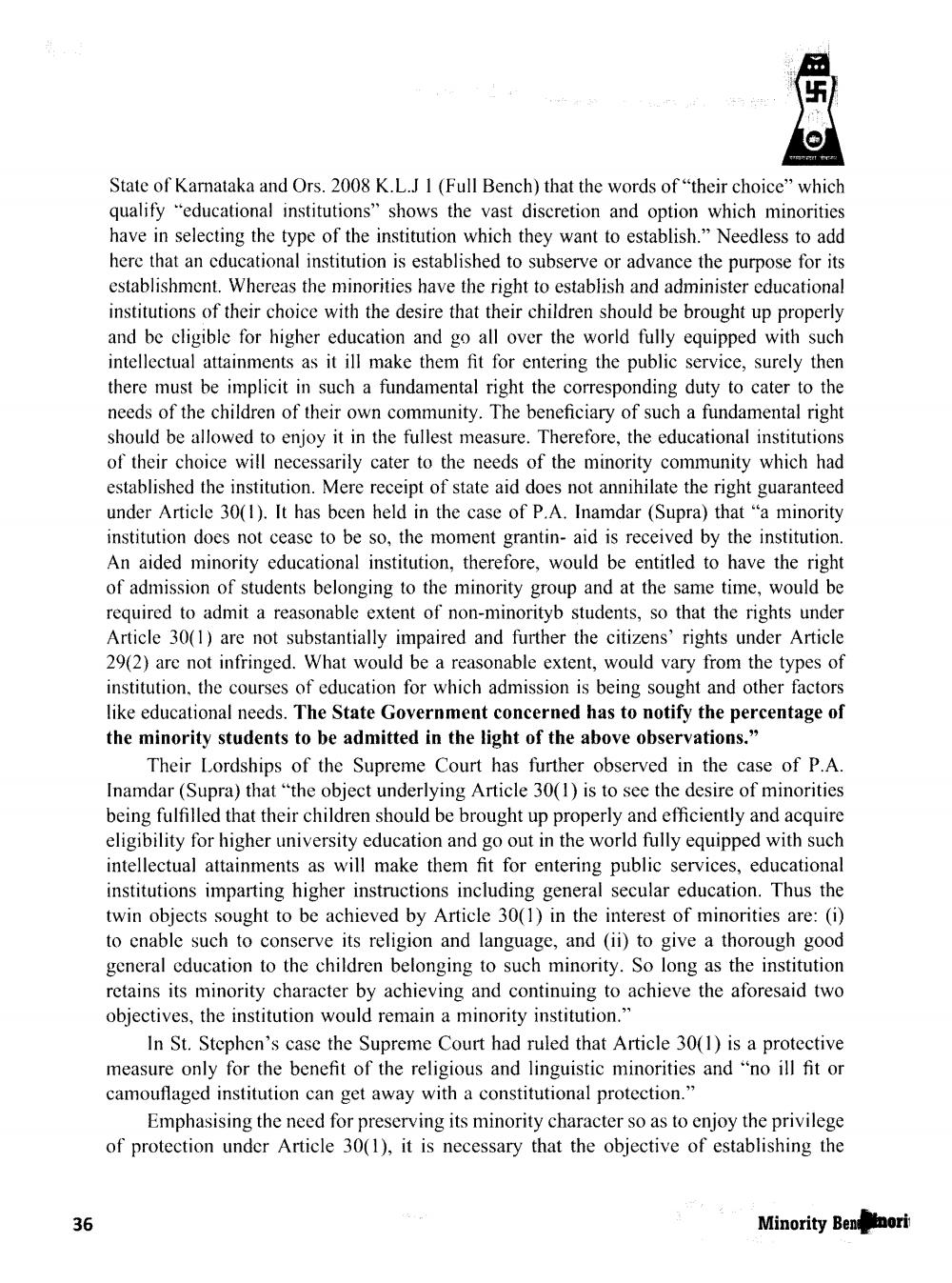________________
State of Karnataka and Ors. 2008 K.L.J 1 (Full Bench) that the words of their choice" which qualify "educational institutions” shows the vast discretion and option which minorities have in selecting the type of the institution which they want to establish." Needless to add here that an educational institution is established to subserve or advance the purpose for its establishment. Whereas the minorities have the right to establish and administer educational institutions of their choice with the desire that their children should be brought up properly and be cligible for higher education and go all over the world fully equipped with such intellectual attainments as it ill make them fit for entering the public service, surely then there must be implicit in such a fundamental right the corresponding duty to cater to the needs of the children of their own community. The beneficiary of such a fundamental right should be allowed to enjoy it in the fullest measure. Therefore, the educational institutions of their choice will necessarily cater to the needs of the minority community which had established the institution. Mere receipt of state aid does not annihilate the right guaranteed under Article 30(1). It has been held in the case of P.A. Inamdar (Supra) that "a minority institution does not cease to be so, the moment grantin- aid is received by the institution. An aided minority educational institution, therefore, would be entitled to have the right of admission of students belonging to the minority group and at the same time, would be required to admit a reasonable extent of non-minorityb students, so that the rights under Article 30(1) are not substantially impaired and further the citizens' rights under Article 29(2) are not infringed. What would be a reasonable extent, would vary from the types of institution, the courses of education for which admission is being sought and other factors like educational needs. The State Government concerned has to notify the percentage of the minority students to be admitted in the light of the above observations."
Their Lordships of the Supreme Court has further observed in the case of P.A. Inamdar (Supra) that "the object underlying Article 30(1) is to see the desire of minorities being fulfilled that their children should be brought up properly and efficiently and acquire eligibility for higher university education and go out in the world fully equipped with such intellectual attainments as will make them fit for entering public services, educational institutions imparting higher instructions including general secular education. Thus the twin objects sought to be achieved by Article 30(1) in the interest of minorities are: (1) to enable such to conserve its religion and language, and (ii) to give a thorough good general education to the children belonging to such minority. So long as the institution retains its minority character by achieving and continuing to achieve the aforesaid two objectives, the institution would remain a minority institution.”
In St. Stephen's case the Supreme Court had ruled that Article 30(1) is a protective measure only for the benefit of the religious and linguistic minorities and "no ill fit or camouflaged institution can get away with a constitutional protection.”
Emphasising the need for preserving its minority character so as to enjoy the privilege of protection under Article 30(1), it is necessary that the objective of establishing the
36
Minority Bendikori




